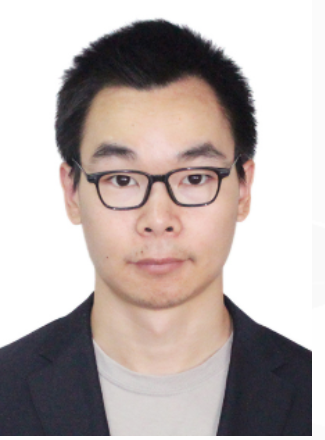 | Professor Daqing Zhang Peking University, China Bio: Professor Emeritus at Peking University, Fellow of the European Academy of Sciences, IEEE Fellow, and Chair of the Ubiquitous Computing Committee at the Chinese Computer Society. Primary research interests encompass ubiquitous computing, urban computing, and intelligent Internet of Things. Has published over 300 academic papers in top-tier international journals and conferences, with a total citation count exceeding 25,200 and an H-index of 81. Has filed over 30 international and domestic patents. The context-aware and wireless perception models he pioneered are widely adopted in international fields such as ubiquitous computing, mobile computing, and service computing. He has recently received the ‘Most Influential Paper Award of the Decade’ from both IEEE UIC 2019 and IEEE PerCom 2013, the ACM MobiCom 2022 Best Paper Award, the ACM IMWUT 2021 Outstanding Paper Award, and nominations for the ACM UbiComp 2015 and 2016 Best Paper Awards. |
 | Researcher Yun Wang Guangdong Greater Bay Area Institute of Integrated Circuit and system, China Bio: Yun Wang, Ph.D. in Engineering, Researcher, is currently the Executive Vice President (Acting President) of Guangdong Greater Bay Area Institute of Integrated Circuits and System Applications, and a Researcher at the Institute of Microelectronics, Chinese Academy of Sciences (IMECAS). He concurrently serves as the Director of Guangdong Provincial Key Laboratory of FDSOI, Director of the Provincial FDSOI Engineering Technology Center, Vice Chairman of the China Integrated Circuit Components Alliance, Deputy Director of the Special Committee of China Automotive Chip Alliance, Member of the Chip Committee of China Association of Automobile Manufacturers, Vice President of Guangdong Integrated Circuit Association, and a member of the Provincial Senior Professional Title Evaluation Committee. He was selected for the inaugural 2023 Central Cyberspace Innovation Talent Program (36 nationwide, recorded by Cyberspace Administration, Finance, and Human Resources authorities), the 2022 Pearl River Talent Innovation Team, and the Chinese Academy of Sciences Youth Promotion Association, among others.
He has received the Chinese Academy of Sciences Science and Technology Development Award, China Industry-University-Research Innovation Achievement Award, was part of the 2016 CAS/Tsinghua Cross-Disciplinary Innovation Team, honored as Elite Talent of Huangpu District, Guangzhou City in 2021, and recognized as the Most Outstanding Science and Technology Worker of Huangpu District in 2022. In 2024, he led the project "Research on Risk Prevention and Mitigation Strategies of Automotive Chip Technology in the Guangdong-Hong Kong-Macao Greater Bay Area," whose policy recommendations were approved by the main leaders of the Guangdong Provincial Party Committee and Government.
|
 | Professor Xiaoyan Gui Xi'an Jiaotong University, China Bio: Xiaoyan Gui graduated from the University of California, Irvine with a Ph.D. She previously worked at Broadcom Corporation, Irvine as a Principal Scientist. Since 2012, she has held positions as Assistant Professor, Tenured Associate Professor, and Professor at Beijing Institute of Technology and Xi’an Jiaotong University. Her main research areas include high-speed wired communication/optical communication and wireless communication integrated circuit design. She has published over 60 papers in international journals and conferences such as ISSCC, CICC, ESSCIRC, IMS, TCAS-I/II, TMTT, TVLSI, MWCL, MWTL, PTL, and TPE. She has filed more than 20 invention patent applications, with 8 patents granted, including one U.S. patent.
He has received over 30 million RMB in funding from more than 20 national natural science foundation projects, and corporate sponsors including Huawei Technologies Co., Ltd. and Alibaba Pingtouge Microelectronics. Her awards include a Second Prize for National Teaching Achievement, a Special Prize for Higher Education Teaching Achievement of Shaanxi Province, a Second Prize for Outstanding Scientific and Technological Achievements in Shaanxi Higher Education, the Huawei “Spark Award,” the IEEE MTT-S IWS Best Student Paper Award, and the 2023 IEEE ICTA Best Paper Award. |
| Professor Yin Wang Institute of Computing Technology, Chinese Academy of Sciences, China Bio: Wang Ying, Research Fellow at the Institute of Computing Technology, Chinese Academy of Sciences, and Secretary-General of the CCF Special Committee on Integrated Circuit Design. His primary research interests encompass integrated circuit design automation, RISC-V special-purpose processor chips, and integrated chip systems. He has led projects including the National Natural Science Foundation of China's Outstanding Young Scientist Fund and the Ministry of Science and Technology's Key R&D Programme. His DeepBurning suite of tools, recognised as a significant contribution to specialised processor automated design, has been integrated into products by companies including NetEase Youdao, Sunny Optical, and China Aerospace Science and Technology Corporation. As technical lead, he spearheaded the 2019 launch of the Institute's inaugural RISC-V edge intelligence chip, JX2. Subsequently, as project director, he led the design of China's first 64-core-die RISC-V integrated chip processor, the Zhijiang No.1. He has published over 100 papers in CCF Class A journals within the integrated circuit and system architecture domains. His work has earned mainland China's first Best Paper Awards in flagship international conferences including IEEE Transactions on Computers and IEEE International Conference on Computer Design (ICCD). His research achievements have garnered the First Prize for Technological Invention from the Chinese Computer Society (as primary contributor), the Second Prize for Technological Invention from the Chinese Institute of Electronics, the Second Prize for Technological Invention from Beijing Municipality, Huawei's Olympus Pioneer Award (for intelligent storage systems), the CCF Young Scientist Award, the CCF-Intel Young Scholar Award, and the CCF Integrated Circuit Early Career Award. Internationally, he received the IEEE/ACM DAC Innovation Award for researchers under 40 (one of four globally that year) and the 2018 CAS Special Award for Scientific and Technological Achievement Transformation. His papers were selected for the 2023 IEEE Top Picks in Testing and Fault Tolerance, alongside Best Paper Awards at GLSVLSI and ITC-ASIA, and a Best Paper nomination at ASPDAC. |
 | Professor Xue Xiao Tianjin University, China Bio: Professor Xiao Xue’s main research areas include service computing, computational experiments, AI agents, and collective intelligence. Since the beginning of his career, he has been awarded the 8th Yang Jiachi Science and Technology Award, the 2023 IFAC Outstanding Achievement Award in Social Computing, the 2023 CCF Outstanding Achievement Award in Service Computing, the Provincial Outstanding Youth Award for Scientific and Technological Innovation, the Provincial Talent of Scientific and Technological Innovation in Higher Education, the Provincial Young Backbone Teacher, and the Provincial Academic Leader, among other honors.He currently serves as the Deputy Director of the Key Laboratory of Healthy Habitat and Intelligent Technology in Tianjin, the Deputy Director of the Computational Social Science and Social Intelligence Committee of the Chinese Association of Automation, an editorial board member of IEEE Transactions on Intelligent Vehicles, an editorial board member of the International Journal of Crowd Science, and a young editorial board member of Complex System Modeling and Simulation. In recent years, he has led or participated in over 30 research projects, including National Key R&D Programs, Defense Innovation Special Zone projects, key and general projects funded by the National Natural Science Foundation, and major provincial projects. As first or corresponding author, he has published more than 60 papers in top journals and conferences such as IEEE Transactions. He received the Best Paper Award at ICWS 2020 (the top conference in service computing), and his paper was listed among the Top 10 Highly Cited Papers in Computer Research and Development in 2021. He authored the monograph Computational Experimental Methods for Complex Systems, which is the first domestic book systematically organizing computational experimental methods. He was also honored with the 2023 IFAC TC Award for Outstanding Achievement in Social Computing and CPSS. Additionally, he has won two Provincial Natural Science Second Prizes (both ranked first), one Provincial Decision-making Achievement Second Prize (ranked first), and one Provincial Excellent Academic Work First Prize (sole author). |

